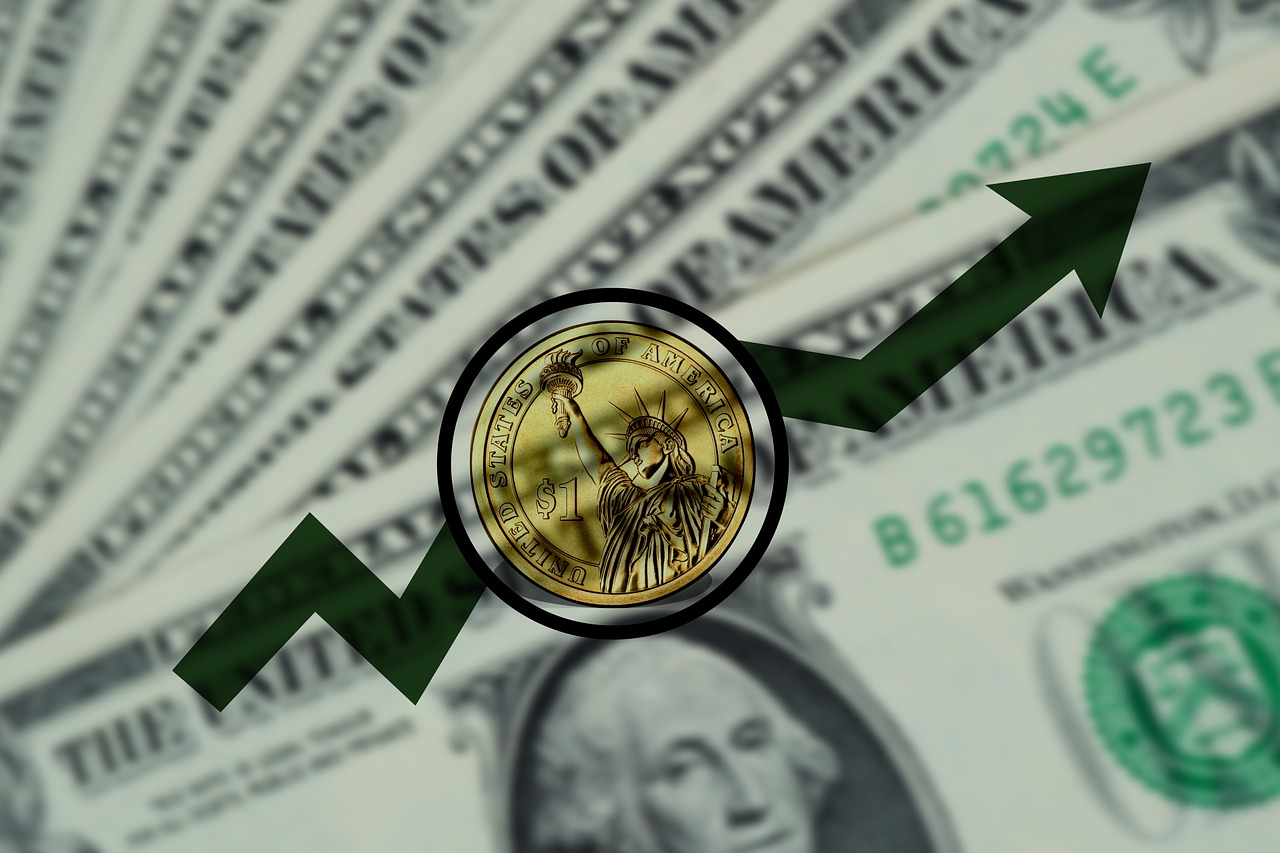Impact of Japan’s Economy, Geopolitics, and Central Banks on Yen-USD Exchange Rate
GPT_Global - 2025-10-26 06:30:21.0 9
How does Japan's economy influence the strength of the yen relative to the US dollar?
Japan’s economy plays a significant role in determining the strength of the yen relative to the US dollar, and understanding this relationship is essential for businesses in the remittance industry. As one of the world’s largest economies, Japan’s economic performance directly affects currency exchange rates, which influence the cost of sending money between countries. When Japan's economy is strong, the yen tends to appreciate against the US dollar, making it more expensive for US customers to send money to Japan.
On the other hand, when Japan faces economic challenges or slower growth, the yen may weaken, making remittance services more affordable for those sending money from the US. Factors like Japan’s interest rates, trade balance, and inflation rates also contribute to the yen’s strength. Remittance businesses must stay informed about these economic indicators to offer competitive exchange rates and avoid unexpected fees for their customers.
In summary, fluctuations in Japan’s economy can lead to significant changes in the yen’s value against the dollar, influencing remittance costs and strategies. By keeping a close eye on Japan’s economic health, remittance companies can better manage exchange rate risks and provide more reliable services to their customers.

How would 1 million yen be converted to USD if the exchange rate is fluctuating throughout the day?
When sending money across borders, understanding exchange rates is crucial, especially when dealing with fluctuating rates. If you need to convert 1 million yen to USD, the rate can change throughout the day, affecting the final amount you receive. For example, if the exchange rate at one point is 1 JPY = 0.0067 USD, you would get approximately 6,700 USD for 1 million yen. However, if the rate later shifts to 1 JPY = 0.0065 USD, you might receive only 6,500 USD for the same amount.
In a remittance business, it is essential to monitor exchange rates closely to ensure accurate and timely conversions. Many remittance services provide real-time updates on exchange rates to help you make informed decisions when transferring money. A slight change in the exchange rate could impact how much the recipient receives, so choosing a service that offers competitive rates and low fees can make a big difference.
Always consider using a reliable remittance service that offers flexible options, allowing you to send money at the most favorable exchange rate. Keep in mind that exchange rate fluctuations are common, and staying informed is key to maximizing your remittance value.
What are the best strategies for managing currency exchange risks between yen and USD?
Managing currency exchange risks is crucial for remittance businesses dealing with fluctuating exchange rates between the Japanese Yen (JPY) and the US Dollar (USD). Businesses that regularly handle cross-border transactions must adopt effective strategies to mitigate these risks and ensure financial stability.
One of the best strategies is using hedging tools like forward contracts and options. Forward contracts allow businesses to lock in exchange rates for future transactions, eliminating the uncertainty of rate fluctuations. Options provide flexibility, allowing companies to secure a favorable rate while having the choice to opt out if the market moves in their favor.
Another effective strategy is diversifying currency exposure. By spreading risk across multiple currencies, businesses can reduce their vulnerability to sudden shifts in the JPY/USD exchange rate. Monitoring market trends and economic indicators also helps businesses anticipate potential risks and make informed decisions.
Lastly, working closely with currency experts and leveraging automated tools can provide better insights and minimize the impact of exchange rate volatility. By implementing these strategies, remittance businesses can navigate the complexities of currency exchange risks between the yen and USD more effectively.
How do central banks, like the Federal Reserve, influence the value of the yen to USD?
Central banks, like the Federal Reserve (Fed), play a critical role in shaping the value of currencies like the Japanese yen (JPY) relative to the U.S. dollar (USD). Their monetary policies, including interest rate adjustments and quantitative easing, directly influence exchange rates. When the Fed raises interest rates, the USD strengthens, often making the yen weaker in comparison.
For remittance businesses, this fluctuation in currency values can significantly impact the cost of sending money abroad. A stronger USD means remitters may need to send less to achieve the same amount in yen, benefiting those transferring funds from the U.S. to Japan. Conversely, a weaker USD means more money is required for the same result.
Central banks' interventions in foreign exchange markets also affect global economic stability, influencing remittance flows. By monitoring and understanding these shifts, businesses can offer more competitive exchange rates, ensuring customers get the most value when sending money internationally. Staying informed about central bank actions is crucial for both individuals and businesses looking to optimize their remittance processes.
What is the average cost of living in Japan compared to the United States with a conversion of 1 million yen to USD?
When considering international remittance or relocating abroad, understanding the cost of living is crucial. Japan, renowned for its advanced economy and vibrant culture, offers a unique living experience, but how does its cost of living compare to the United States? While expenses can vary by city, generally, Japan's living costs are somewhat lower than those in major US cities like New York or San Francisco. For example, rent and transportation costs are often more affordable in Japan, though food and entertainment can sometimes match or exceed US prices.
One key factor for remittance services is currency conversion. As of recent exchange rates, 1 million yen equals approximately 6,800 USD. This conversion offers a practical way to assess how much money you can send from Japan and how far it will stretch in the US. For remittance businesses, understanding these conversions helps customers optimize their transfers and gain more value from their transactions. Providing timely, cost-effective remittance solutions can significantly benefit both expats and families sending money internationally.
In conclusion, Japan presents a competitive cost of living compared to the United States, with the exchange rate playing an essential role in global remittances. Knowing these financial dynamics is essential for anyone looking to manage their international funds effectively.
How much could 1 million yen be worth in USD if the value of the yen decreased by 10%?
When it comes to international remittances, understanding currency exchange rates is crucial. A decrease in the value of one currency can impact the amount of money received in another currency. For example, if the Japanese yen (JPY) decreases by 10%, how would this affect the conversion to US dollars (USD)?
If you were to convert 1 million yen to USD, a 10% depreciation of the yen would mean a reduction in its value. Normally, 1 million yen might equal around $6,800 USD, depending on the exchange rate. With a 10% decrease in the yen's value, you would receive significantly less in USD, approximately $6,120 USD. This decrease could make a notable difference for individuals sending or receiving remittances.
For those using remittance services, it’s important to keep an eye on fluctuating exchange rates to maximize the value of the money being sent. By understanding these changes, you can better plan for international transfers and ensure the recipient gets the best possible amount in their local currency.
Is there a significant difference in the value of 1 million yen when exchanged in Japan versus the United States?
When it comes to remittance services, one important factor to consider is the value of currency when exchanged internationally. A common question among people looking to send money overseas is whether there is a significant difference in the value of 1 million yen when exchanged in Japan versus the United States.
Currency exchange rates fluctuate constantly based on global market trends. In Japan, 1 million yen holds its full value, while in the U.S., the amount can be subject to less favorable exchange rates. Remittance businesses typically offer different rates depending on the location of the sender and recipient.
For example, when sending 1 million yen from Japan to the U.S., the recipient may receive a smaller dollar amount due to the exchange rate margin charged by financial institutions. However, by using a trusted remittance service, individuals can secure competitive rates, minimizing the difference and maximizing the value of their transfer.
Understanding these variations in currency value can help consumers make informed decisions about the best method to send money across borders. Choosing the right remittance provider with favorable exchange rates ensures that your hard-earned money goes further, whether you're sending or receiving funds.
How do geopolitical tensions between Japan and the US influence the exchange rate between yen and USD?
Geopolitical tensions between Japan and the United States can significantly impact the exchange rate between the yen (JPY) and the U.S. dollar (USD). When political uncertainty rises, investors often seek safe-haven assets like the yen, causing its value to appreciate against the dollar. Conversely, if tensions lead to economic instability or reduced investor confidence in Japan, the yen may weaken.
For individuals and businesses involved in international remittances, these fluctuations directly affect the amount of money received or sent across borders. A stronger yen benefits those receiving money in Japan, while a weaker yen favors those sending funds from Japan to the U.S. Understanding these dynamics helps remittance users plan transfers strategically and minimize currency loss.
Remittance providers can offer value by monitoring market conditions and advising customers on the best transfer times. Staying informed about Japan–U.S. relations allows businesses and individuals to make smarter financial decisions, ensuring more favorable exchange rates and maximizing the value of every transaction.
About Panda Remit
Panda Remit is committed to providing global users with more convenient, safe, reliable, and affordable online cross-border remittance services。
International remittance services from more than 30 countries/regions around the world are now available: including Japan, Hong Kong, Europe, the United States, Australia, and other markets, and are recognized and trusted by millions of users around the world.
Visit Panda Remit Official Website or Download PandaRemit App, to learn more about remittance info.


